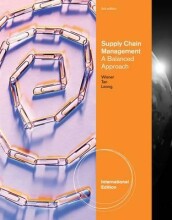Random-Number Generators - Linear Congruential Generators
5 important questions on Random-Number Generators - Linear Congruential Generators
What are the 2 objections against LCG? (LCG = Linear Congruential Generators)
What is the recursive formula of LCG and explain the variables?
a = multiplier c = increment m = modulus Z_0 = seed or starting value the variables are all nonnegative integers
What are the 3 conditions on m, a, c guaranteeing that pseudo-random number sequence has full period m? (thm 7.1)
3) if 4 divides m, then 4 divides a -1
Obtaining a full or at least long period is a desriable property for a good LCG
- Higher grades + faster learning
- Never study anything twice
- 100% sure, 100% understanding
If m = 2^b with b is the number of bits when do you obtain a full period?
What is an advantage and a disadvantage of mutiplicative LCG?
The question on the page originate from the summary of the following study material:
- A unique study and practice tool
- Never study anything twice again
- Get the grades you hope for
- 100% sure, 100% understanding































